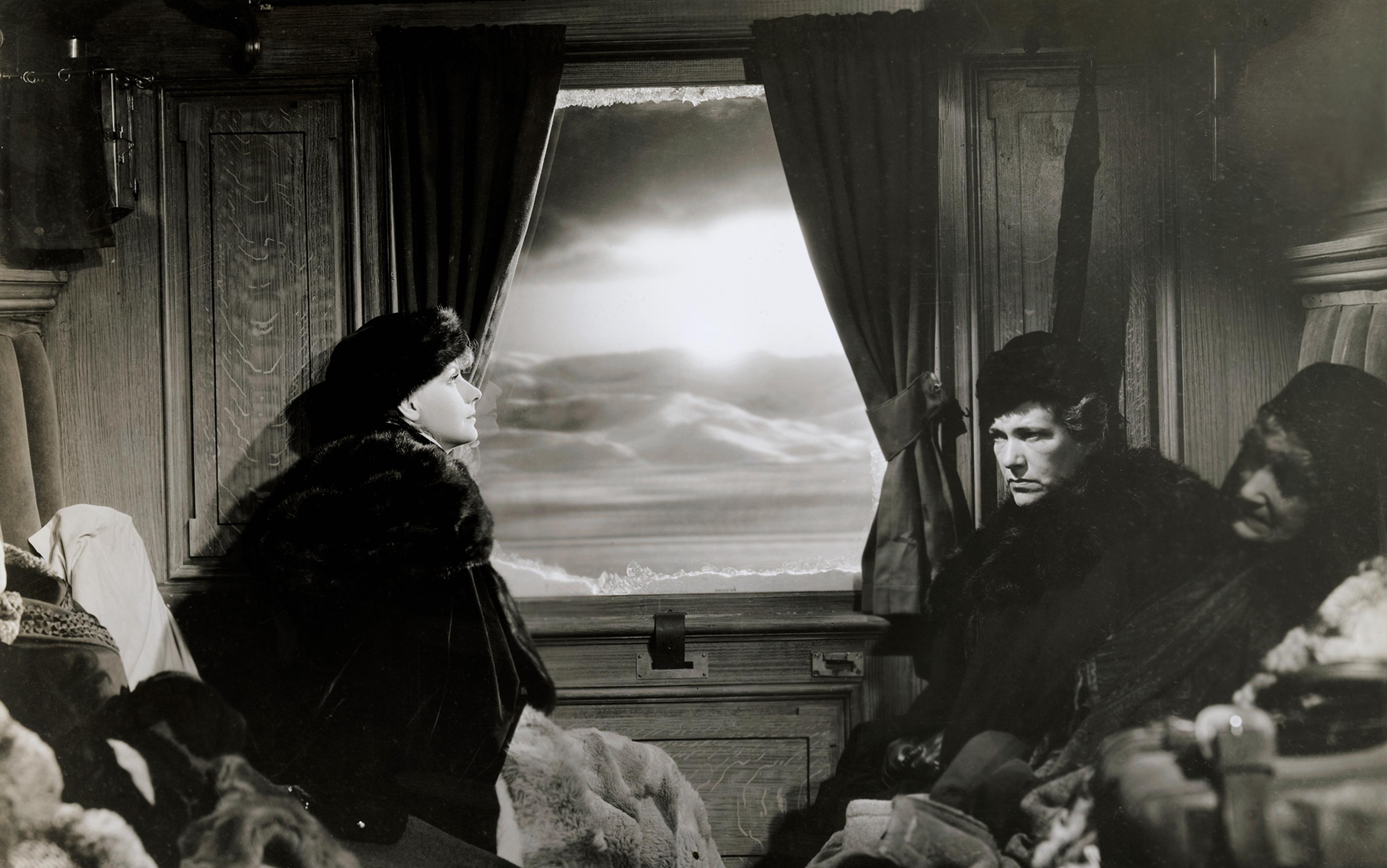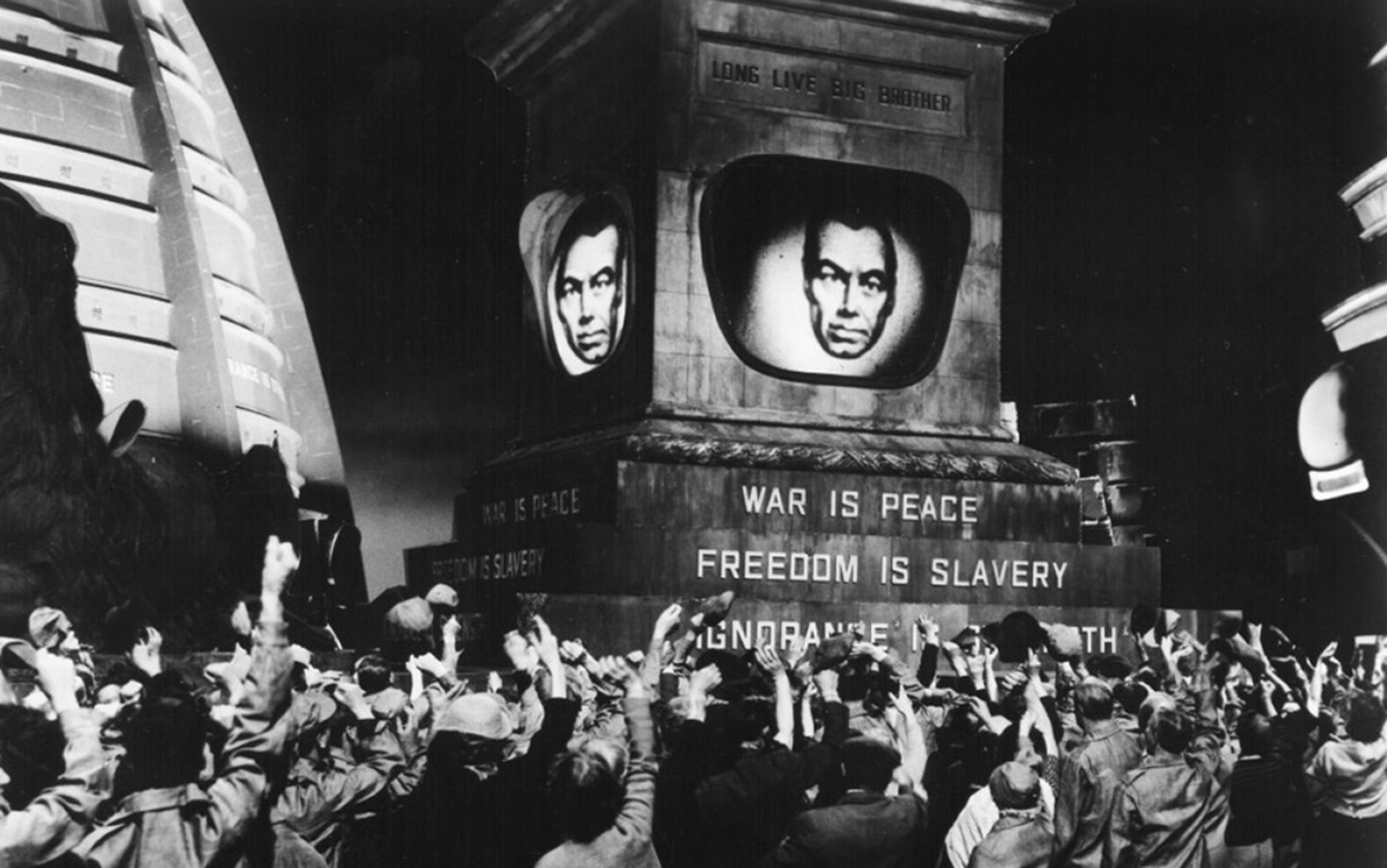Suppose I’ve advertised a postdoctoral researcher position, and in one applicant’s file I find a very short reference letter from a PhD supervisor praising her student’s excellent command of English, impeccable use of MS Word templates, and remarkably regular seminar attendances. Even though the letter doesn’t say anything negative, it might make me think twice about hiring this student. How did I arrive at this nonliteral interpretation of the letter? According to the philosopher H P Grice, it all comes down to the assumption that communication is fundamentally a cooperative endeavour. At first sight, the letter-writer’s focus on irrelevant trivialities might seem rather uninformative, and hence not very helpful in assessing the candidate’s suitability for the job. At that point, Grice’s assumption of cooperativity can trigger the following line of reasoning: if the professor had held a high opinion of the student’s academic skills, she surely would have put something to that effect in the letter; she didn’t, so she probably doesn’t think very highly of her student, and is thus communicating to me that I shouldn’t hire her.
This reasoning pattern exploits a specific subtype of communicative cooperativity that involves presenting as much of the relevant information as possible. Grice distinguishes various other parameters of cooperativity, each associated with a number of so-called maxims. In the following we’ll zoom in on the maxims of quality: ‘do not say what you believe to be false’ and ‘do not say that for which you have insufficient evidence’. While it might seem intuitively clear that cooperative speakers should adhere to these maxims, it is equally clear that, as a matter of fact, we violate them on a regular basis.
We exaggerate (‘I’d sooner be found dead in a ditch than ask for another Brexit delay’), we tell lies (‘I did not have sexual relations with that woman’), we bullshit – a technical term referring to statements made by someone who doesn’t care about their truth or falsity – we tell jokes (‘I was so proud to finish the puzzle in six months. On the box it said three to four years’), we write novels (‘It was a bright, cold day in April, and the clocks were striking thirteen…’), we use metaphors (‘All the world’s a stage, and all the men and women merely players’) and we use sarcasm and irony (‘Cold, windy and raining? I love Dutch weather!’). In all of these cases there is a clear sense in which we are not really presenting the truth, as we know it, based on the best available evidence. But there are vast differences between these phenomena. For instance, while some constitute morally objectionable behaviour, others are associated with art and poetry. Following Grice’s lead, let’s take a closer look at the different ways in which the maxims of quality are violated, in an attempt to pin down the surprisingly elusive distinction between fiction and lying, and their place in the overarching Gricean theory of linguistic communication as a cooperative endeavour.
The first helpful distinction in this space is between violating a norm and flouting it. When I sigh and roll my eyes while saying in a deadpan tone: ‘Sure, dad, your knock-knock jokes are always hilarious,’ I’m technically violating the maxim of quality, but I’m not lying. Instead, I’m doing my best to make clear that I’m aware that I’m violating it – in Grice’s terminology, I’m ‘flouting’ the maxim. Recognising these signals, you will then look for a more charitable interpretation of my communicative intentions, one that does not violate the established norms of cooperative discourse after all. In this case, you would conclude that I used sarcasm to convey the opposite of what my words literally mean.
Liars, we said, violate the same maxim, but they don’t flout it. Theirs is a covert violation, and hence lying has an altogether different effect on the interpreter than irony, sarcasm or metaphor. When the former US president Bill Clinton said that he ‘did not have sexual relations’ with his intern Monica Lewinsky, he was trying to deceive us into believing just that – no hidden, nonliteral layer of interpretation was intended or warranted. In other words, from the hearer’s perspective, a successful lie is just an ordinary assertion.
Fiction is more complicated. Note first that, on the face of it, a work of fiction (a short story, a novel, a movie, a joke, or children’s game of pretend), consists of speech acts that, for the most part, look like ordinary assertions. As with lies and irony, there is no dedicated grammar or style for constructing fictional statements that would reliably distinguish them from regular assertions. When I give you a couple of pages of a seemingly realistic story, say in a diary format, you might not be able to tell if it’s a work of fiction or an actual diary. Moreover, as with lies and sarcasm, most if not all those assertoric (or fact-based) statements in a work of fiction are known by the author to be false. Again, we seem to be dealing with a genuine Gricean quality violation.
Plato wanted to ban poets from his ideal society, David Hume called them ‘liars by profession’
Is fiction more like the covert violation of the liar, or like the overt violation of the ironical speaker? Unlike the liar, the fiction author doesn’t hide her untruthful intentions: they’re on the book’s cover, or announced by a library classification sticker. When you pick up a Harry Potter book, watch one of the movies, or listen to a podcast discussion thereof, there is no deception – in fact, a proper appreciation of the work presupposes that we know that Harry Potter is a fictional character, made up by J K Rowling. However, unlike in the case of irony, the fiction author’s words have their regular meaning. The apparent flouting doesn’t trigger the expected nonliteral reinterpretation of the author’s words in order to restore adherence to the maxims.
So while we have managed to distinguish irony from lying, the place of fiction in our typology remains unclear. There are two hypotheses to explore. First, we can stick with the idea that both fiction and lying are quality-violating assertions – ie, speech acts presenting something believed to be false as if it’s known truth – and then look for some other feature to distinguish them. Second, outward appearances to the contrary, we can analyse fictional discourse as constituting a different type of speech act, where the usual norms and maxims don’t apply in the first place.
Starting with the fiction-as-assertion hypothesis, the idea that both lying and fiction are just assertions of known falsehoods can be traced back to eminent philosophers such as Plato, who wanted to ban poets from his ideal society, David Hume who called them ‘liars by profession’, and Albert Camus who wrote that ‘fiction is the lie through which we tell the truth’. It is apparent today in the common usage of fiction-related phrases such as ‘story’, ‘pretend’ and ‘made up’ to characterise lying (‘Trump just made up that whole story about Mexico paying for his wall’). To evaluate the extent to which fiction really is like lying, it will be helpful to be clear on exactly what lying is.
The quest for a proper definition of lying is an old but still fashionable topic of philosophical debate. For starters, the simplest definition would be that a lie is the assertion of a falsehood. But actual falsity is neither necessary nor sufficient for a claim to count as a lie. Aristotle claimed that women have fewer teeth than men, but that doesn’t make him a liar. And if a lazy student says that the dog ate her homework, she’s lying – even if, unbeknown to her, the dog did in fact eat the neglected homework (this is the so-called accidentally true lie). What matters more than actual truth or falsehood is that liars believe their statements to be false.
Further additions to this definition of lying have proven controversial. The suggestion that lies are by definition morally objectionable seems refuted by cases of white lies (‘What a cute baby!’). White lies can prevent awkward confrontations and thereby benefit all parties involved. A more promising suggestion would be a requirement that lies involve deception. This holds for accidentally true lies as well as white lies. Still, there are counterexamples, known in the literature as ‘bald-faced lies’. A rather dramatic example from the film The Godfather Part II (1974) involves a witness for the prosecution, Frank Pentangeli, who, for fear of the mafia retaliating against his family, recants his earlier testimony by stating that he ‘never knew no Godfather’. Everybody in the courtroom understands that Pentangeli is lying. Pentangeli himself knows he’s not going to convince anyone, but he doesn’t really care – he just wants to show to Don Corleone that he’s no snitch. Pentangeli lies without trying to deceive anyone.
To sum up, lies are simply assertions of something that the speaker believes to be false. Although we typically think of lies as false, deceptive and morally objectionable, there are examples of behaviour ordinarily classified as lies that do not have these additional properties.
When an exam asks: ‘Gollum bites off Frodo’s ring finger; true or false?’ the right answer is ‘True’
Returning to the hypothesis that both fiction and lies are forms of assertion, it becomes really hard to distinguish them. On the one hand, this is a good thing, as some or all bald-faced lies might as well be classified as fiction, with Pentangeli essentially mounting a little dramatic performance to broadcast his loyalty to the Godfather. On the other hand, there is something deeply unsatisfying about giving up the quest for a rigorous distinction. If we look a bit further, we will find evidence that backs up our intuition that these really are distinct phenomena.
A first striking difference between fictional statements and lies is the fact that, while most lies are simply false (or, at best, accidentally true, as we saw above), many philosophers have argued that the statements making up a work of fiction, even those involving clearly nonexistent entities, are not really false, but at least ‘in some sense’ true – viz, a true relative to the fictional world in question. When an English literature exam asks: ‘Gollum bites off Frodo’s ring finger; true or false?’ the only right answer is ‘True’. While neither fiction nor lies are meant to express known facts about the real world, in many contexts we’re inclined to count some fictional statements as, in some sense, true. Lies, by contrast, never generate fictional worlds or fictional truths at all – they’re just plain false, or at best accidentally true.
A second difference between fiction and lies that has received a lot of attention, this time from philosophers of art, is known as the paradox of (the emotional response to) fiction, spelled out in some detail by the philosopher Colin Radford in the paper ‘How Can We Be Moved by the Fate of Anna Karenina?’ (1975), co-authored with Michael Weston. Radford starts from the observation that we can be moved by stories, written or told, fact or fiction. For instance, when I meet you at a bar and proceed to tell you in great detail about how my old, beloved dog Buddy died in my arms last night after a brutal battle with a degenerative disease, and how my other dog, Spot, is now at home howling with loss and misery, refusing to eat, staring out the window waiting for his good friend Buddy to return – you might be moved to tears.
But imagine I then reveal that I’m actually a cat person, never had a dog, never will – and in fact I just made up the whole thing for a laugh. At that point, your sadness will quickly evaporate and make way for other emotions such as anger. Yet, as Radford puts it, we weep for Anna Karenina, knowing quite well that Leo Tolstoy’s 1878 novel is a fiction and Anna Karenina, like Buddy, never existed. For some reason, works of fiction induce what the English poet and philosopher Samuel Taylor Coleridge in 1817 called a ‘willing suspension of disbelief’, allowing us to be emotionally engaged with commonly known falsehoods. Lies evidently lack this property: once a lie is exposed, suspension of disbelief and emotional engagement in accordance with the story’s content become impossible.
We’ve seen that assertions can violate the maxim of quality in two different ways: overt violation (flouting) gives rise to a nonliteral interpretation that doesn’t violate the maxim, as in the cases of irony and metaphor; meanwhile, covert violation – which deceives the interpreter into thinking she’s dealing with a norm-abiding, truthful assertion – does not affect interpretation, until it is exposed, in which case the original interpretation is cancelled altogether. Fiction doesn’t fit in either category, and hence we might want to give up the starting assumption that fictional statements are the kinds of speech acts that are subject to the maxim of quality in the first place. The idea would be that fictional statements, despite their outward similarity in terms of grammar, are not straightforward instances of assertion at all. Many 20th- and 21st-century approaches to fiction in philosophy of language and analytical aesthetics explore this option.
Semantic approaches, championed by David Lewis in his seminal 10-page paper ‘Truth in Fiction’, postulate that the statements making up fictional discourse are, logically speaking, abbreviations of more complex constructions. ‘Harry Potter fails History of Magic’ abbreviates the unproblematically true assertion ‘In the Harry Potter books, Harry Potter fails his History of Magic test.’ Approaches of this type were especially popular in 20th-century analytic philosophy, in the wake of Ludwig Wittgenstein’s Tractatus and Bertrand Russell’s essay ‘On Denoting’ (1905), which hold that natural language tends to obscure an underlying, more complicated logical form for philosophically problematic statements.
Pragmatic approaches, by contrast, hold that the difference between fictional statements and regular communicative assertions lies not in some hidden logical operators in the fictional assertion, but in the fact that telling fictional stories is an altogether different speech act from the act of assertion that makes up our talk about the weather, or our newspaper reporting. This should explain why readers react differently, both emotionally and in terms of truth value or moral judgments, to fiction than to lies and other assertions. As the English poet and soldier Sir Philip Sidney put it in The Defence of Poesy (1595): ‘Now for the poet, he nothing affirmeth, and therefore never lieth.’ Contemporary philosophers such as Kendall Walton, Gregory Currie and Kathleen Stock further characterise the speech act of fiction-making as one that prescribes imagining rather than knowledge or belief. The pragmatic view of fiction as constituting a distinct, imagination-centric speech act is now so widespread in philosophy that, in his book Fiction and Narrative (2014), Derek Matravers calls it the ‘consensus view’ (which he rejects in favour of an updated version of the view we discussed above, that there is no fundamental distinction between fiction and assertion).
‘Frodo has hairy feet’ is ‘fictionally true’, while ‘Frodo has wings’ is not true in any sense
On the consensus view, then, it seems that fiction and lying are mutually exclusive, for they belong to distinct speech act categories, conform to different norms, and affect different cognitive states. In his paper ‘Novels Never Lie’ (2019), James Edwin Mahon defends precisely this position. One potential counterexample he takes up is the case of Robinson Crusoe (1719), first published with a preface wherein Daniel Defoe, the author, assures the reader that what follows is a truthful account told to him by Crusoe himself, with Defoe merely acting as editor.
Fictions thus claiming to be true stories are now commonplace, from J R R Tolkien who claims to present translations from the so-called ‘Red Book of Westmarch’ (the collected memoirs of Bilbo and Frodo themselves) to movies such as The Blair Witch Project (1999), presented as actual documentary footage found in the woods. Apart from, apparently, Defoe, few have actually managed to convince their readers or viewers into thinking that the stories were nonfiction, nor was that probably even their intention. According to the consensus view, this is because there is a fundamental distinction between fiction and nonfiction, so that the fiction author plays by an altogether different set of rules than the historian, and can basically say whatever she wants without risk of being accused of lying or deceiving. In other words, novels can’t lie, because the novelist is not bound by actual or believed truth norms at all.
Nonetheless, as we have observed above, some fictional statements are not entirely devoid of truth values: ‘Frodo has hairy feet’ is true in some sense (viz, ‘true in the Lord of the Rings saga’, or ‘fictionally true’), while ‘Frodo has wings’ is not true in any sense. So now the question arises: given that there are clear judgments about fictional truth and falsity, can’t there also be fictional lies, contra Mahon’s conclusion?
Note first that fictional characters – like real people – are frequently quoted spouting all kinds of confused nonsense, falsehoods and lies about their fictional world. When Narcissa Malfoy examines Harry Potter’s slain body and tells Voldemort that he’s dead, she’s lying. But what we’re interested in is whether it’s possible that the text itself – including lines such as: ‘“He is dead!” Narcissa Malfoy called to the watchers’ – could ever be considered as false descriptions of the fictional world.
We might reason that, since it is the text itself that generates the fictional world, the statements that make up that text should automatically become true in that world. When George Orwell wrote that ‘the clocks were striking thirteen’, it thereby became true in the fictional world of Nineteen Eighty-Four (1949) that the clocks were striking thirteen. Unlike for the historian or the journalist, there is no relevant world outside the text, relative to which we could fact-check whether Orwell miscounted. This line of argument can be summed up in the principle of authorial authority: the statements that make up a work of fiction are true in that fiction. But the implication goes only one way. There are no doubt many things that are true in a given fiction beyond what is explicitly written. None of the Sherlock Holmes stories explicitly says that the detective has 46 chromosomes, or that Amsterdam is the capital of the Netherlands, yet we take these propositions to be true in the fictional world of Sherlock Holmes. On closer inspection, it seems that, even in the intended direction, the principle of authorial authority is problematic. Two counterexamples follow.
Literary scholars have long been fascinated with unreliable narrators – ie, cases where the unquoted parts of the text are understood as told by a lying or confused narrator. The most salient examples feature first-person narratives – ie, stories presented as told by a fictional ‘I’ from inside the story world. Such a first-person narrator might be as confused or deceptive as any fictional character. Thus, Humbert Humbert’s claims that Lolita was trying to seduce him, or Pi Patel telling us how he dealt with a tiger, a hyena, a zebra and an orangutan in his lifeboat are typically considered highly unreliable guides to what actually happened in the fictional world, assurances of trustworthiness by the narrators themselves notwithstanding.
Not everything the text says is automatically true in the fictional world it creates
Convincing examples from third-person narratives, told from an impersonal, omniscient perspective (think, Harry Potter or Nineteen Eighty-Four), are much more difficult to come by. After all, being omniscient, such a narrator cannot be confused, and being impersonal, they’d have no motivation to deceive. Some narratologists even argue that such stories have no narrator: ‘no one speaks here; the events seem to narrate themselves’, as Émile Benveniste put it in 1966. One good example is the opening line of Jane Austen’s novel Pride and Prejudice (1813): ‘It is a truth universally acknowledged, that a single man in possession of a good fortune, must be in want of a wife.’ It is clearly tongue-in-cheek, despite the seemingly omniscient narrator fading into the background for the remainder of the story.
Meanwhile, philosophers have been equally fascinated by a closely related phenomenon called imaginative resistance. Consider the following story:
Sara never liked animals. One day, her father caught her kicking the neighbour’s dog. He got really angry, and she was grounded for a week. To get back at her father, she poured bleach in the big fish tank, killing all the beautiful fish that he loved so much. Good thing that she did, because he was really annoying.
Readers will have no trouble accepting that, in the fictional world of this story, a girl named Sara kicked a dog, got grounded, and then killed her father’s fish with bleach. But with the last sentence we resist: even though the text says it was a good thing that she killed the fish, readers (both philosophers and naive subjects of psychological experiments) typically reject that it really was a good thing in the world of this story. Whether or not this case involves a kind of unreliable narrator rearing its head, as in the Pride and Prejudice opening, is still a matter of some debate. In any case, both unreliable narration and imaginative-resistance phenomena illustrate the inadequacy of authorial authority: not everything the text says is automatically true in the fictional world it creates.
Let’s take stock. If we want to use language to effectively exchange information about the world around us, it has to be guided by norms such as ‘Say only what you believe to be true.’ But – also – rules are meant to be broken. We’ve seen how liars and ironical speakers exploit the norms of cooperative discourse, but in very different ways. Fiction turned out to be harder to pin down: on the one hand, the fiction author, like the liar, tells known falsehoods; but on the other hand, she thereby creates fictional truths. I conclude that fiction isn’t lying, even when the preface falsely claims what follows to be a truthful memoir, or when some of the fictional characters or even the narrator turn out to be highly unreliable.






